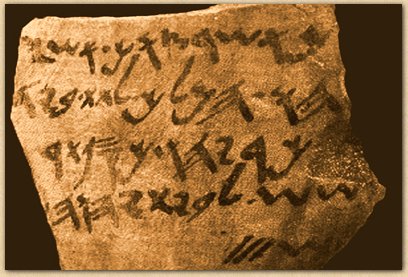In class this passed Tuesday in which we were discussing Samuel and the rise of the monarchy a very sharp student asked why/how God could “regret” having made Saul king since God was all-knowing (1 Sam. 15:10 and 1 Sam. 2:3 respectively). I gave my usual, admittedly overly-simplified comment, that this is precisely why I do not hold much to systematic theology because the Bible is not systematic. That led to the student writing this excellent blog post respectfully taking me to task! (I strongly urge you to read his post.) So I feel I should respond to a few of his points. [mfn]Oh, and I should point out that this student is a philosophy major and has a very solid grasp of his discipline. Philosophy, formally, is not something that I can claim great knowledge of and this is important, as you shall see.[/mfn]
First we have his adequate definition of systematic theology:
which is basically the attempt to arrange religious truths in a self-consistent whole (or so my pocket dictionary claims).
The student then stated that my argument against trying to form a self-consistent reading of these texts falls afoul of a fallacy.
However, much to my surprise, some have argued against this sort of systematic interpretation, claiming that the text itself is not a systematic text, hence it is fundamentally wrongheaded to attempt a systematic interpretation of it. Unfortunately I don’t find this line of argument to be very convincing. It’s true that the Bible is not a systematic text, but this is not an ARGUMENT for why the bible should not be systematically interpreted, but instead commits an Is-Ought fallacy (sometimes referred to as Hume’s Guillotine) by illicitly moving from an ‘IS’ claim to an ‘OUGHT’ claim.
Now I admit that this is the first time I have come across the “Is-Ought problem” so I had to study up a bit on this. His argument is that my argument stating that the Bible is not “systematic” (by which I mean necessarily coherent or internally consistent) therefore we should not (ought not) try and build a systematic reading of the text fails because I am going from a descriptive statement to a prescriptive one. I don’t think I will argue with that, certainly that is what I am doing, but I would reject that such a move is a “fallacy.” For reasons I hope I can articulate.
I think the best place to tuck into this is by better stating my position. As I said, I often make the very simplified comment that “I do not do much with systematic theology because the Bible isn’t.” It is cute, usually gets a laugh and actually summarizes my view pretty well. I am undoubtedly conditioned by the fact that I grew up in a tradition that emphasized textual study over theological study (e.g., it was a Presbyterian church, but I didn’t know what predestination was until I was in college) and I have made it my discipline to read these texts carefully and to study how others have read the texts. So when I read a passage in the Bible, I am trying to understand what that passage says and means on its own. Later, I will consider it within the context of the biblical book, the canon, and the community of faith, but initially I want to try and understand the text as it stands, in so much as I am able. This is also what I try and teach in my intro class.
And it is at this point that I disagree with the student and systematic theology.
Methinks that it is our great virtue as thinkers to be ABLE to examine a chaotic text like the Bible with numerous inconsistencies and hash out (read: CREATE) a systematic account of the concepts and lessons in a way that is ORDERLY and self-consistent. Lets face it, the human intellect does not understand Para-consistencies very well (if at all), and the purpose of reading a text like the Bible (I hope) is to understand it. The only way to understand what is going on is to create a systematic (self-consistent) account where otherwise no such account is to be found. Coming up with answers to questions like the one above (why would God make a decision he knew he would regret?) is a necessary part of understanding the text.
The first point, that I will simply state and move on, is that the Bible is made of many texts and even many of the books of the Bible are themselves composites of many texts. So the Bible is not “a text” to understand, it is many texts. In that sense, I do understand the need of those of us within a faith community to read the Bible as a whole, but I think I will save my comments on that for another post. My second point comes right to the heart of my complaint. The student/systematic theology wants to “CREATE” a systematic account. That is, it is an imposition on the text which means that having done that one is not truly “understanding the text” but rather, upon examination of the system created, merely learning something about the one who created the system. This is not an attempt to fully understand the Bible (let alone its constituent parts), instead it is an attempt to make the Bible into a new work, palatable (or digestible) by the reader.
I also think that these para-consistencies [mfn]This was also a new term for me. If I am understanding it correctly, which is not a certainty, it may serve as the answer to the question we began with in 1 Samuel.[/mfn] serve to personalize the text in very important ways – they OPEN the text to creativity and interpretation (and creative interpretation), all of which are very personal and individualistic practices. For example, if I encounter the above stated para-consistency and wonder what (if anything) this dilemma implies about the nature of God, then the answer I eke out with my own powers of reasoning will inevitably be my own inference in a very personal way*1* [I personally find this interesting since it implies that the bible expresses individuality in its universality, and does so in a way that results in freedom]. Such para-consistencies allow us to express our freedom in the text, whereas if everything were explained then the text would be alienating and exclusive.
At this point the student seems to have effectively moved into “reader response,” the text takes its meaning only once the reader has constructed a system that satisfies his/her needs. It is the answer that “I eke out with my own powers of reasoning” that is important. And that is my primary beef with systematics; it is revealing about the “reader,” the one who has created the system imposed upon the text(s), but it does not (necessarily) reveal anything about the texts themselves.
Against this I would place a larger, less relativistic (although perhaps unattainable) goal: to understand what the text says (and by extension what the author(s) believed?) and ultimately what is true about God.





7 thoughts on “Is-ought the Bible to be systematic?”
Interesting. If I understand the kid, his basic premise is that if the Bible has any meaning as the “Word of God,” then it “ought” to be making consistent points.
Fair enough, but then — possibly realizing that no such consistency is logically possible — he retreats into relativism, because that is the only way to keep a shred of faith in the texts as a collective “Word of God.”
To me, the logical conslusion is that the texts have all sorts of differences because they were written at different times by people with wildly diverging beliefs. And that isn’t because it would ruin our free will and make it too easy to believe or make people too uniform if God explained everything clearly (which I think is the kid’s point), but because there is no big picture. It’s just a reflection of what ancient myths were believed by ancient people at different points in time and place.
Someday the kid will realize that as well, if he can be honest with himself.
bonds – Actually, the student (hardly a “kid”) does not come from a faith background, this much he has shared. So I think it is unlikely that his challenge regarding creating systems is due to his faith, but rather to his training as a philosopher.
I don’t think that your conclusion is necessarily the only solution either, if I am honest with myself and you. I DO think that you are right that the divergent views are due to the differing authors. My premise, however is that the seeking complete unity (or disunity) is missing the point. What if we searched for points of contact and commonality instead?
Chris:
Thanks for correcting me on the points about “the kid.”
As far as your conclusion, “What if we searched for points of contact and commonality instead?” I have nothing against that. I wish we could all just get along and stuff.
But it’s logically difficult for me to believe that God decided to teach humans about himself via a strange patchwork of oddball writings written by unknown people at unknown times, and not once in those 66-odd writings is his true nature even revealed. I gather what you are saying is that God wants us to be good and all that, but that’s explicitly not what it says in this book he allegedly inspired. The authors of the book talk a lot about slaughter and primitive rituals and how God is not interested in your good works, but your devotion so you can spend the next zillion years telling him how great he is (as if he needs us to tell him over and over. Sheesh.)
You think that God inspired a patchwork collection of works that was put together by God-knows-who that teaches ideas that aren’t exactly right in the hope that humans would learn a lesson that isn’t exactly taught.
And you know, I used to agree, until the logic against such a belief became too much to resist. It just don’t make no sense. Like I said, if there is a God and that is his position, well, what a strange way to accomplish whatever it is he hoped to accomplish.
Nice dialogue with the student. This is the stuff that makes teaching great.
Your money quote is this: “but it does not (necessarily) reveal anything about the texts themselves.”
The issue is that a balance is always struck between the boundary of the reader who must impose certain assumptions on the text as with any other knowledge of the world and the object itself (see Piaget’s formula of assimilation/accommodation = intelligence). The problem is when we do not try to work to achieve that balance. The text should inform and transform our existing understanding of it as our existing understanding changes how we read the text. But when we wish to have any new insight, the critical issue is that we are able, to the best of our ability, bracket our assumptions to have a fresh look. With enough effort, this is what hopefully leads to insight.
Therefore, no structure is necessary to understanding the text. But we do have structures that are simply more useful than others. Forcing a text (or any object of knowledge) to fit a preconceived intellectual structure of consistency betrays the development of becoming more intelligent about it in my judgment. If an hypothesis does not predict a result, one changes the hypothesis. But theology which is so enmeshed in traditions and human relationships finds this to be a continual stumbling block to making our theology a more intelligent tool to understand ancient texts.
I believe that God is indeed all-knowing. This is the way I understand that. God has the power to know whatever He wants to know/foreknow. But, He is not obligated to foreknow something He may wish not to foreknow. If He were so obligated, He would not be all powerful. His situation would be, “I dont want to foreknow this, but I cant help it.” I think He can help it, if he so chooses. He can choose to do whatever He pleases because His power is unlimited. He can do or not do, know or not know, as He pleases. I have always thought that Calvin’s god was too small. Instead of being completely sovereign, He is not sovereign enough. The God of the Bible can do as He wishes.
John:
You need to just stop and read out loud to yourself what you just wrote and breathe in the ridiculousness of it. If necessary, read it several times out loud.
And I don’t mean that as an insult, just to point out that in order to really believe in the Bible, people necessarily must twist themselves into crazy intellectual knots (or just not think at all) in order to try and hold all the illogical and contradictory pieces together.
If there is a God, either: A) He must know everything in advance and therefore be responsible for everything, or B) He lets everything go and therefore has no right to expect anything.
Any other options make not the slightest sense.
Hi Dr. Brady,
Thank you for your thoughtful comments to my post. First let me say that I’m turbo-happy you both understood my thoughts, and (more importantly) my purpose for posting my thoughts (not to argue some simple point to pieces, but to LEARN something new). On the whole I think that the process of carving out the post and thinking through the responses taught me a lot about my own thoughts, opened doors for new thoughts, and provided me with important tools for re-considering and revising my convictions. In short, it was an educating experience and I feel like I’m walking away from it having gained a thing or two (so thank you for that). I’ll try to write more later if I have time, but at the moment, unfortunately, I don’t.
Best,
Alex